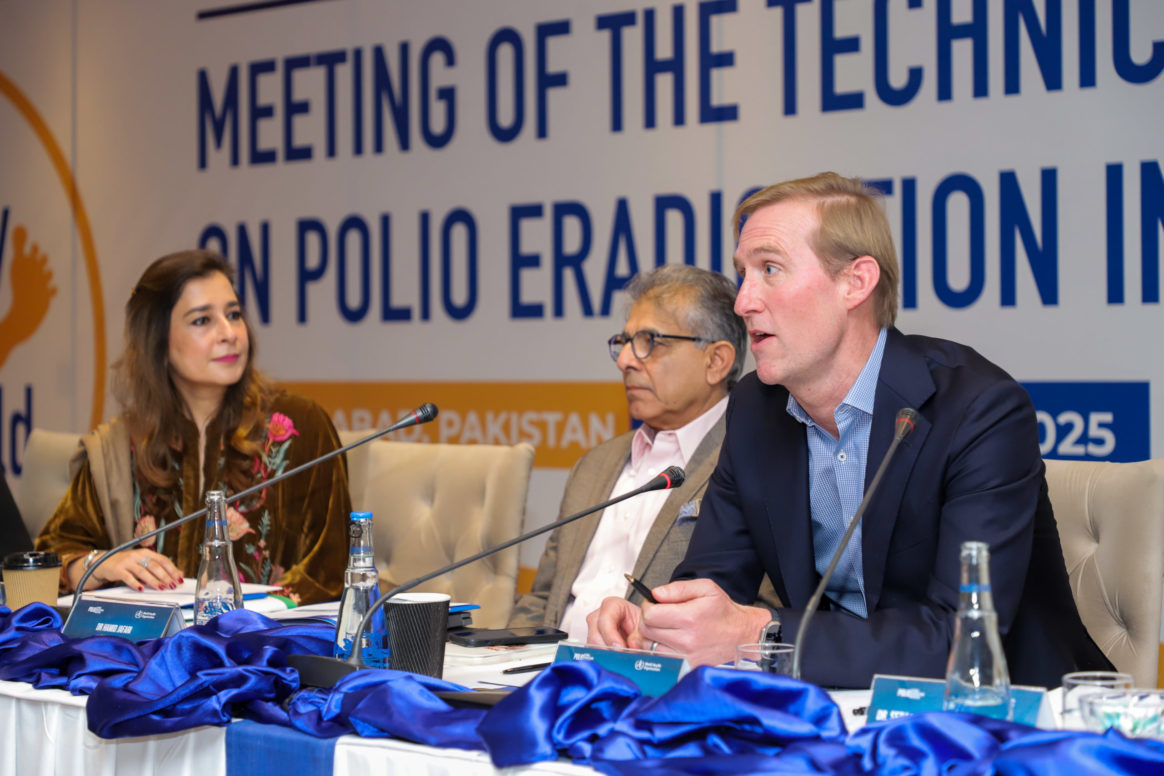
In light of increasing wild poliovirus transmission in the last two remaining endemic countries Pakistan and Afghanistan, Global Health Experts gathered in Islamabad recently to evaluate measures to urgently reverse the epidemiological trend. The Meeting of Technical Advisory Group (TAG) on Polio Eradication conducted, as the country faces a resurgence of wild poliovirus (WPV1) cases and a narrowing window to interrupt transmission by the end of 2025. With 73 WPV cases reported in 2024 compared to just six in 2023, and a significant increase in environmental detections across historic poliovirus reservoirs like Karachi, Peshawar, and Quetta and beyond, the pressure to demonstrate results has never been greater. The meeting underscored the urgent need for extraordinary efforts and emergency operational measures to get the programme back on track and restore national and international confidence in the success of the longstanding effort.
The Technical Advisory Group was convened by the WHO Regional Director for the Eastern Mediterranean Dr. Hanan Balkhy on behalf of Member States and the GEPI partners. In her opening remarks, she emphasized the importance of reaching children being missed, particularly in insecure, underserved, high-risk areas and among migrant and mobile populations. The group highlighted the need to focus on areas where the virus has returned or continues to spread, particularly in parts of southern Khyber Pakhtunkhwa, central Pakistan and urban centers. New approaches were discussed to ensure every child is reached, especially in areas where security issues and logistical challenges make vaccination campaigns difficult.
Experts outlined specific milestones that must be achieved by mid-2025 to reverse the widespread poliovirus transmission. The next six months are considered critical for making progress, with efforts focused on delivering effective vaccination campaigns and addressing challenges in hard-to-reach areas. To meet these ambitious targets, the quality of vaccination campaigns must improve to reach children who continue to be missed. They were of the view that missing children repeatedly remains the single largest challenge for the programme.
The TAG recommended specific benchmarks of quality and indicators of missed children that the programme must meet to achieve the recommended milestones for reversing poliovirus transmission trends by June 2025. Despite these challenges, there are significant opportunities for Pakistan to make strong progress in 2025. With committed political and administrative leadership, enhanced security support, and especially the Prime Minister’s regular Stock Takes, the programme can capitalize on this momentum to build a national movement for the “last push.” Other key areas of focus that was discussed include improving the morale and motivation of frontline workers, expanding routine immunization coverage through the EPI and leveraging the Big Catch Up campaigns to address gaps in immunization.
A review in June 2025 will assess the programme’s trajectory and identify any urgent course corrections needed to sustain progress. The close interdependence between Pakistan and Afghanistan in eradicating polio further underscores the need for cross-border collaboration. As one country’s progress influences the other, maintaining high-quality efforts in border areas will be critical.
At the meeting, Raza Farooq, the Prime Minister’s Focal Person on Polio Eradication in Pakistan emphasized the solidarity of the Global Polio Eradication Initiative (GPEI) with countries striving to protect future generations from polio. He highlighted the importance of collaboration among partners, governments, civil society, religious leaders and frontline workers to overcome challenges and ensure that no child is left behind on the path to a polio-free Pakistan.
Dr. Mike Ryan, Executive Director of WHO’s Health Emergencies Programme and Deputy Director-General of WHO said that like the moon landing, polio eradication is a challenge that tests our collective resolve and compels us to achieve the extraordinary. The last mile is the hardest. It is the least crowded mile, full of risks and failures waiting to confront you but it is also where true determination and resilience shine. He hoped that Pakistan alongside Afghanistan will achieve polio eradication.

